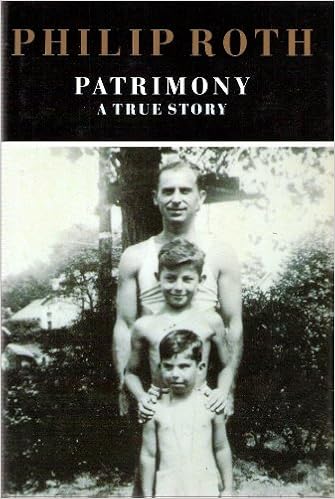
Patrimony: A True Story, by Philip Roth
Roth’s 1991 memoir charts the illness and death of his father, Herman Roth, from an inoperable brain tumor, as it charts the man’s life too. Roth’s account unfolds in his trademark penetrating and melancholy style, and in a decidedly un-Rothian way, offers one of the more tender entries into the Roth canon. Portraying his widowed, eighty-six year-old father, Roth shows an unvarnished, full-faceted picture of both the father and of the son, and what it’s like, in middle age, to care for an elderly parent—the tensions, dilemmas and humiliations. We’re shown too, the man Herman once was, and in many ways still is, domineering, persistent, a survivor:
“You mustn’t forget anything – that’s the inscription on his coat of arms. To be alive, to him, is to be made of memory – to him if a man’s not made of memory, he’s made of nothing.”
There’s no disputing the dedication, the love, and the sense of emotional inheritance Roth the son feels he’s bequeathed by Roth the father. Yet for me, a woman reading Roth (and often in awe of the prose and breadth of storytelling skill) it’s an understatement to say there are moments when it feels like I’m reading dispatches from a hostile country—where women are for the most part relegated to types and aren’t granted the same emotional scope and nuance of character as men. Yet in this memoir, Roth adopts a different stance, one informed by filial respect and clear-sightedness. Or perhaps it’s the stark reality of witnessing his strong-as-bull father’s mortality, but in Patrimony, we find Roth’s hostile persona tempered. No memoir can possibly be “true,” yet what of it can be known surely has its source in the son’s love for his father.
—Lauren Alwan

